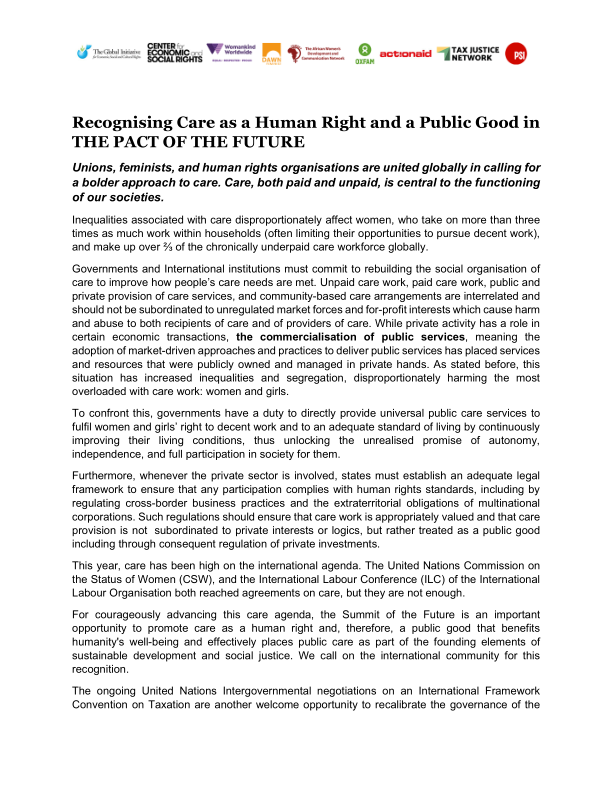
As the UN prepares to shape the Pact for the Future, feminist, labor, and human rights organizations are pushing for care to be recognized as a fundamental human right. The current global care system, driven by inequality and exploitation, must be transformed through public investment and progressive policies.
As the United Nations Summit of the Future approaches, CESR, together with key allies including Public Services International (PSI), DAWN Feminist, GI-ESCR, Oxfam, ActionAid, Tax Justice Network (TJN), FEMNET, and Womankind, is issuing a unified call to recognize care as a fundamental human right and a public good in the upcoming Pact for the Future. Care work—both paid and unpaid—is essential to the functioning of societies, yet its value remains chronically unrecognized, particularly for women and girls, who bear the brunt of both unpaid household work and underpaid roles in the care sector.
The Pact for the Future is an ambitious initiative currently under negotiation by United Nations member states. It is designed to create a robust framework for multilateral cooperation in the 21st century. The outcomes of the upcoming Summit of the Future (to happen next September 22 and 23 in New York), where this pact will be a central focus, are crucial for confronting today’s crises and setting a long-term course for transforming the global economic system, in which the issue of care is one of the most urgent to address.
The declaration calls for recognizing care as a human right and a public good, urging governments and international institutions to transform how care work—paid and unpaid—is valued and organized. It highlights the disproportionate burden of care on women and girls and demands public investment in universal care services, free from privatization and market-driven exploitation. The declaration emphasizes the need for robust regulatory frameworks to ensure private sector involvement aligns with human rights. It also advocates for the inclusion of care as a central element in the Pact for the Future, underpinned by progressive taxation and international cooperation.
